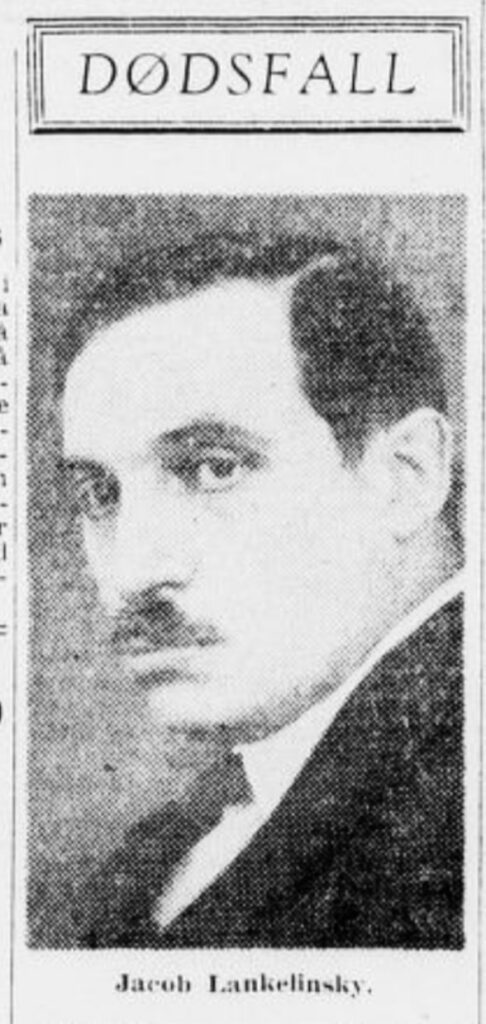He was working as a music teacher and violinist in Trondheim when he was arrested on 7th October 1942 at the age of 50 as a persecuted Jew (“Jödeaksjonen”). He was imprisoned in the Falstad concentration camp, in the town prison of Trondheim Vollan, and finally sent to camp Bredtveit, from which he was released on 2nd March 1943. As the documentation of Norwegian refugees in Sweden reveals, he escaped into Swedish exile the same day, together with his elder brother (Abraham) Isak, who had been born in 1883. Three more names of the Lankelinsky-family can be found in the records, Betty (born 29 December 1894), and her daughters Miriam (born on 22 March 1918) and Peggy Hanna (born 3 April 1928). While Betty and Peggy crossed the Norwegian-Swedish boarder on New Year’s Eve, 31 December 1942, Miriam followed not before 12 April 1944 (the reason is not clear).
This escape had only been possible, because Isak’s and Jacob’s parents – Israel Lankelinsky (1853-1929) and Sara Lea, née Wolfsohn (1856-1937) – had lived in Sweden during the 1870s and 1880s, before they moved to Trondheim. Jacob was the only one of their three children who was born there, Isak and their sister Bertha (1881-1924) had been born in Karlstad, Sweden. This family connection now proved to be their rescue and in his registration papers Lankelinsky could claim to be united with his family, which was already living in Stockholm.
After Norway had been liberated, Jacob Lankelinsky returned to Trondheim and continued to work as a violin teacher. In October 1945 his name can already be found in local newspapers again, to which he also contributed concert reviews during the following years. In 1955, he claimed a compensation for his persecution for racial reasons in Germany. But with regard to Lankelinsky’s Norwegian citizenship at the time of his arrest, he was not considered “staatenlos” (“stateless”) and his request was therefore declined.
He lived to be 66 years old. An obituary in Trondheim’s newspaper Addresseavisen mourned for a man, who was persecuted because of his Jewish descent and returned to Trondheim after the war with a “crack”. “But he continued his work at Trondheim’s music school, despite his strong afflictions, which became harder and harder as times passed by.”

